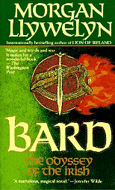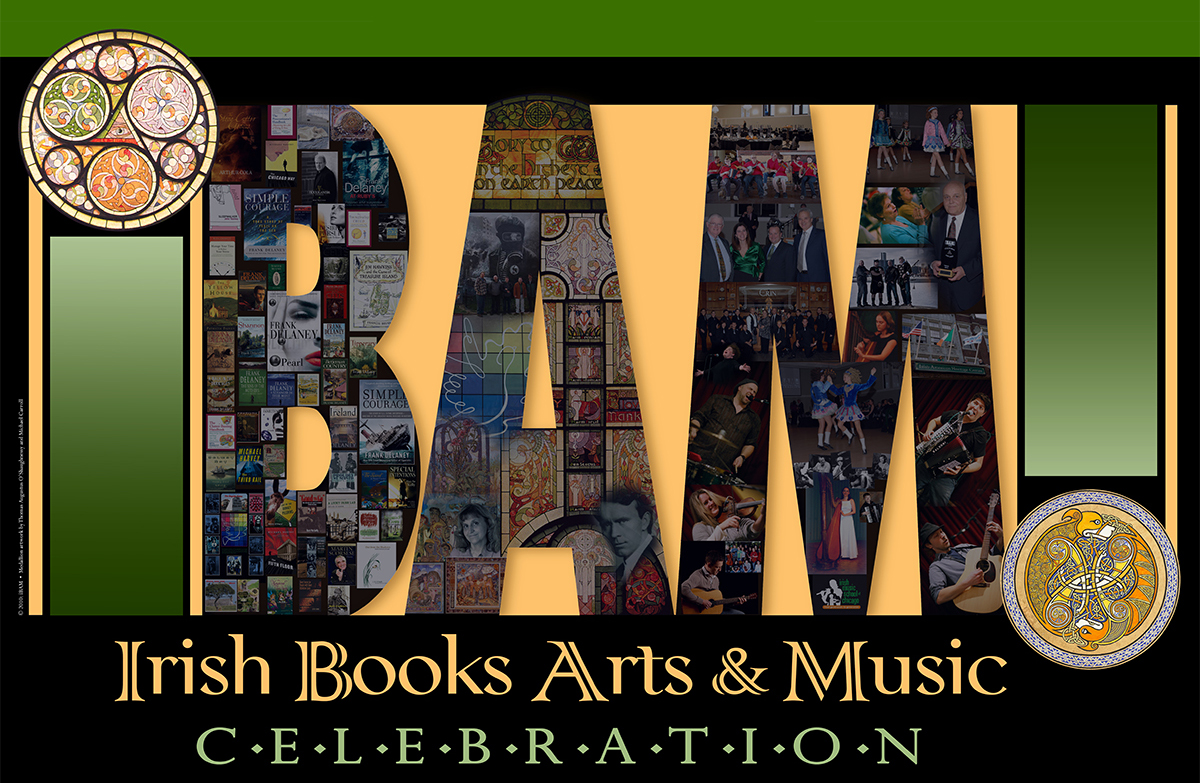Synopsis
Morgan Llywelyn combines elements of Celtic mythology and history into her interpretation of the migration of a tribe of Celts to Ireland in her novel Bard, subtitled "The Odyssey of the Irish."
Amergin, one of the six sons of the chieftain Milesios, has never been like his four warrior brothers; like his brother Colptha, he has become a druid. But where Colptha's role is that of sacrificer, Amergin is a bard, his music and his memory serving to pass on the history of his people. He is also responsible for recording the new deeds and accomplishments of his tribe in words and music.
They are the Gaelicians, living on the northern coast of Iberia -- today, Spain -- and it has been many years since they were visited by the Sea People, the traders of Tyre and Carthage. The sighting of a Phoenician's merchant ship is cause for great initial excitement and anticipation which is shattered when one of Amergin's brothers breaks the rules of hospitality. Furthermore, the Gaelicians have little of value with which to trade, and the Phoenician's storm-battered wares are less than admirable.
These conditions are a sign of the times. The clan has grown in times of prosperity, and food and resources are becoming scarcer. The situation is compounded further in that there is little room to expand. But both Age-Nor, the trader, and an elderly Gaelician share with Amergin tales and visions of a green and welcoming land called Ierne, and Amergin knows that his destiny is to travel there with his people. His vision is that of a bard's land, but his brothers Eremon and Eber Finn have other ideas, warrior ideas.
The narrative is a tapestry made up of the threads of its characters; the plot is detailed with the various facets of their lives. The focus shifts occasionally to Ierne, where the race called the Tuatha de Danann, the Children of Light, the Children of the Goddess Danu anticipate change and disruption. Held to be legendary, magical figures, they are presented as an evolved pre-Gaelic Celtic tribe, which they well might have been. As is the case with many of Llywelyn's novels, while a knowledge of Celtic mythology is not necessary to enjoy the novel, familiarity with the old stories will enhance it.
Some of the characters are based on historical characters: the "Song of Amergin" is one of the earliest works of western European poetry. Others are fictional, but all are memorable and the reader cares about them all. Llywelyn has gathered together the little that is actually known about the ancient Celts and woven it into a lush, engrossing saga which will stay with the reader for a long time.
AuthorNew York-born author Morgan Llywelyn is one of the world's leading popular chroniclers of Celtic culture and history. A prolific storyteller, she has written more than twenty books over the past two decades. Her fiction has received several awards and has sold more than 40 million copies, and she herself is recipient of the 1999 Exceptional Celtic Woman of the Year Award from Celtic Women International.
In the words of Judith A. Gifford of the reference publication Twentieth-Century Romance and Historical Writers, "Drawing on the history and lore that are part of her own heritage, the works of Morgan Llywelyn concern themselves with Celtic heroes and heroines, both real and mythical, bringing them and the times they inhabited to life with stunning clarity." Pauline Morgan, writing in the St. James Guide to Fantasy Writers, has explained, "[t]he majority of Morgan Llywelyn's books may be regarded as fictional biographies. Each book takes a person, often historical or legendary, and relates the story of their life. Most of the novels with a fantasy connection rely heavily on Celtic mythology, particularly that of the Irish.
Morgan Llywelyn now lives outside of Dublin, Ireland, and has become an Irish citizen.
Sidebar
Magazine menu

 The irish Book Club
Find your New Favorite Book Here!
The irish Book Club
Find your New Favorite Book Here!
22
Wed, Oct






